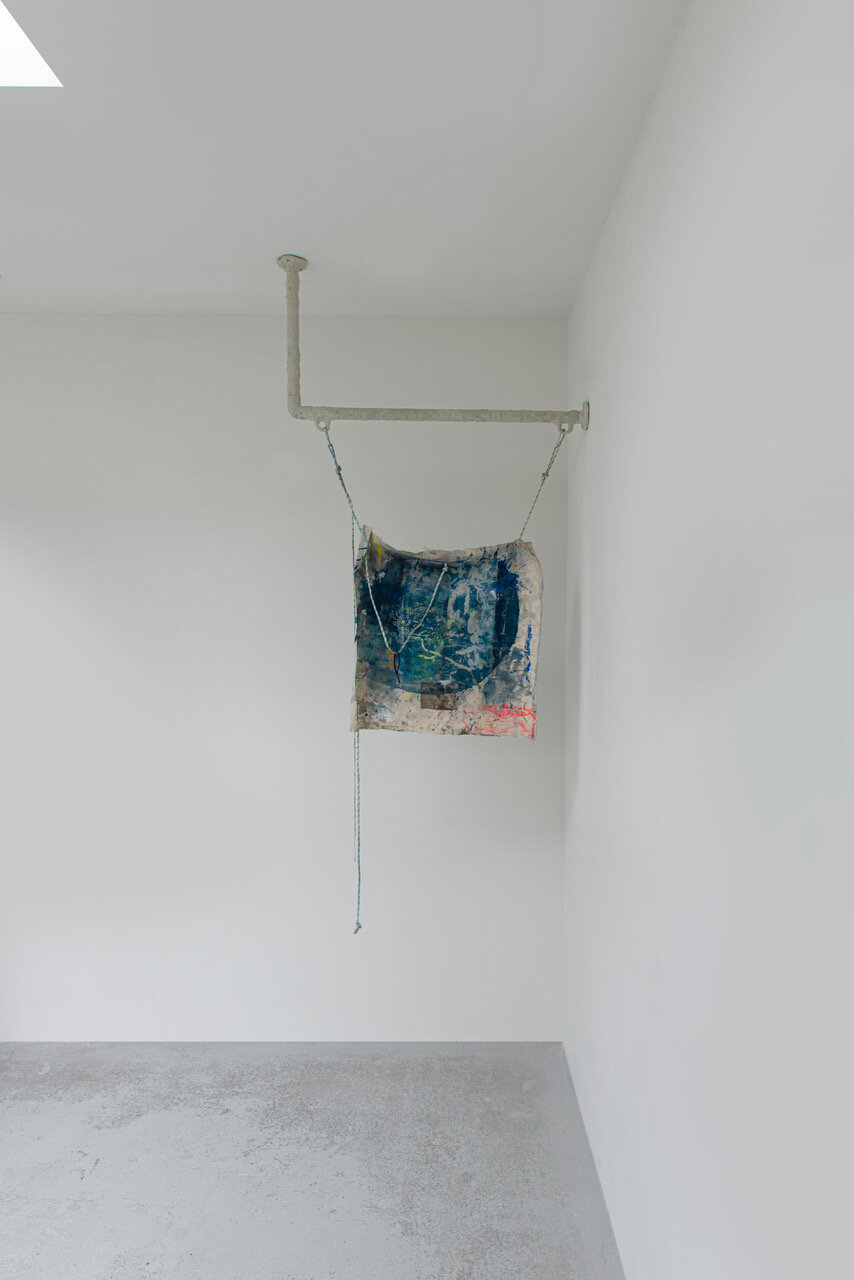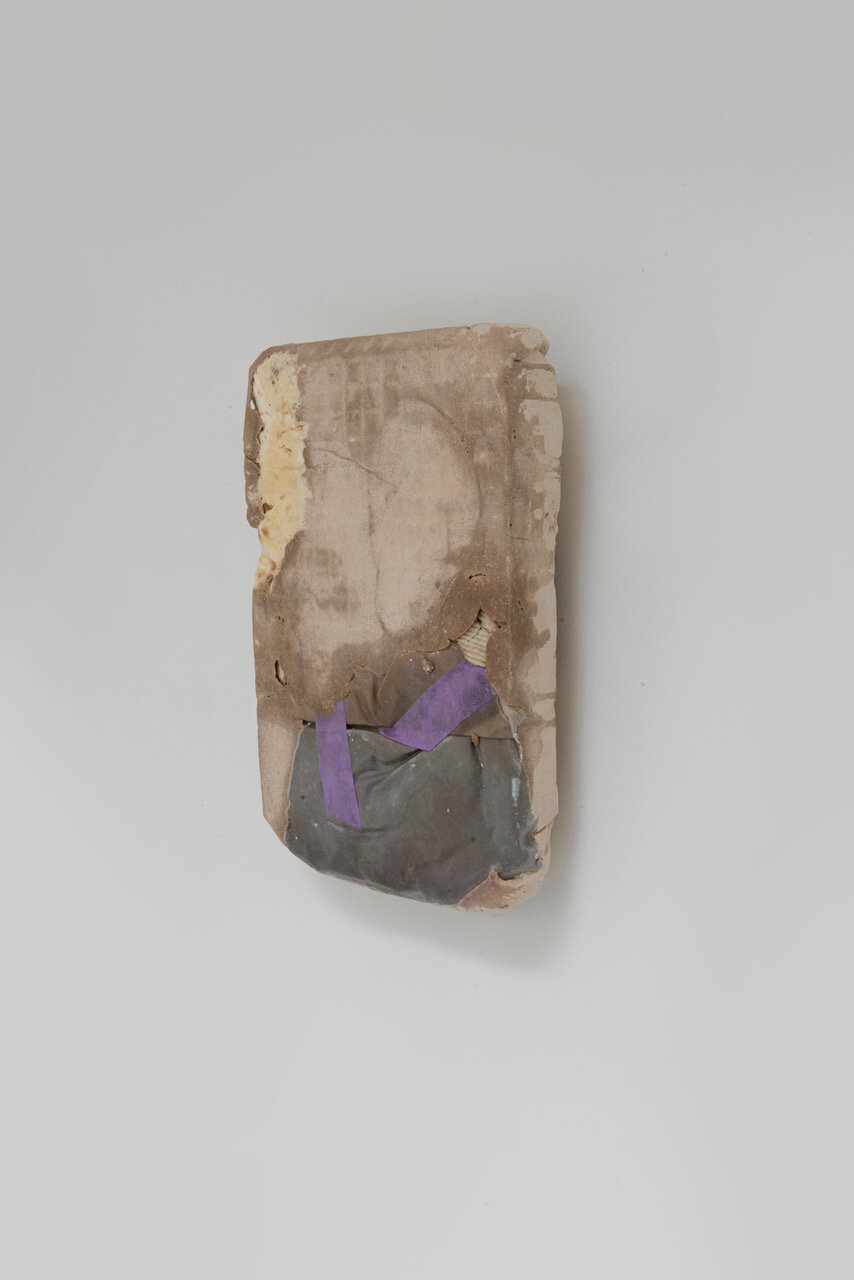ONLine catalogue
14 December 2019 - 16 February 2020
No Man’s Art Gallery is honored to present when cotton catches fire, the first solo exhibition by Arash Fakhim (1987). Rather than being merely a collection of objects, when cotton catches fire ought to be regarded as an artist’s mind map, showing the transferal features of objects in relation to the artist and each other. The title is inspired by the theory of object-object relations formulated by philosopher Graham Harman. According to Graham, things have a depth to their being that is never fully revealed or exhausted in their dealings with other things (or human beings).* Fakhim questions the naturalness with which we characterise objects being aspects such as color, usability and smell etc. He plays with our perception of what an object is by mashing it up, changing its attributes and displacing it:
“I create new dialogues by approaching things differently than what they at first sight communicate. By misplacing and abusing them, I try to get the thingness out of things, for example taking the bagness out of bags. In this way I question the function of a thing through its substance-specificity”
For his new Pardeh series (2019) it was the Dutch suburban streetscape that caught the artist’s eye. There, in front of lace curtains, miniature Buddhas, plastic ornaments and decorative stickers adorn the windowsills of Dutch houses, a visual language that so effortlessly put all that he had been doing in reverse. These paintings are based on the shimmering projection of objects and their reflection in the window and onto the curtain. Not making any distinction towards the spatial, the flat or the material but rather creating an image wherein these aspects collide.
when cotton catches fire shows the clash of elements stacked on top of each other and compressed into a mash which Fakhim often describes as a “broodje kapsalon”**. Fakhim shows us the perspective of an outsider that questions and alters the status quo of a certain culture, material, object or thing. By working with a diaspora of things in which he himself shapes and redefines the qualities of perceptual representations, Fakhim traps them in their actual transitional state. Consciously challenging and playfully affirming a plurality of realities and directions.
* According to Graham when fire encounters cotton it “relates” to the cotton primarily by way of its flammability. All other aspects of cotton’s being – its color, usability, smell, etc. – withdraw from the fire’s relation with cotton.
** A “broodje kapsalon” is a dish consisting of fries, shoarma or döner, topped with grilled cheese and fresh salad. Often served with garlic sauce or sambal.
Photos: Chun-Han Chiang & Neeltje de Vries





